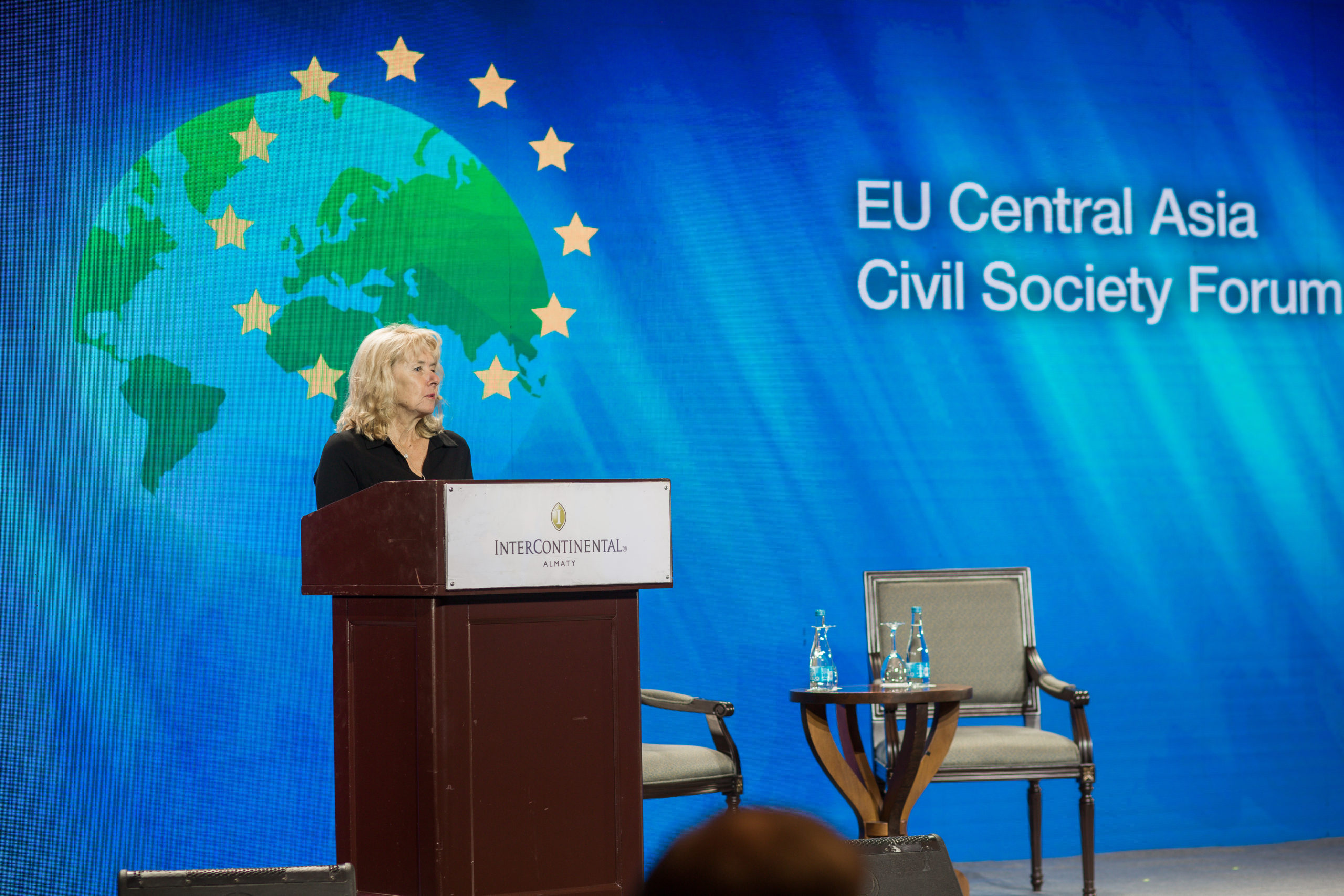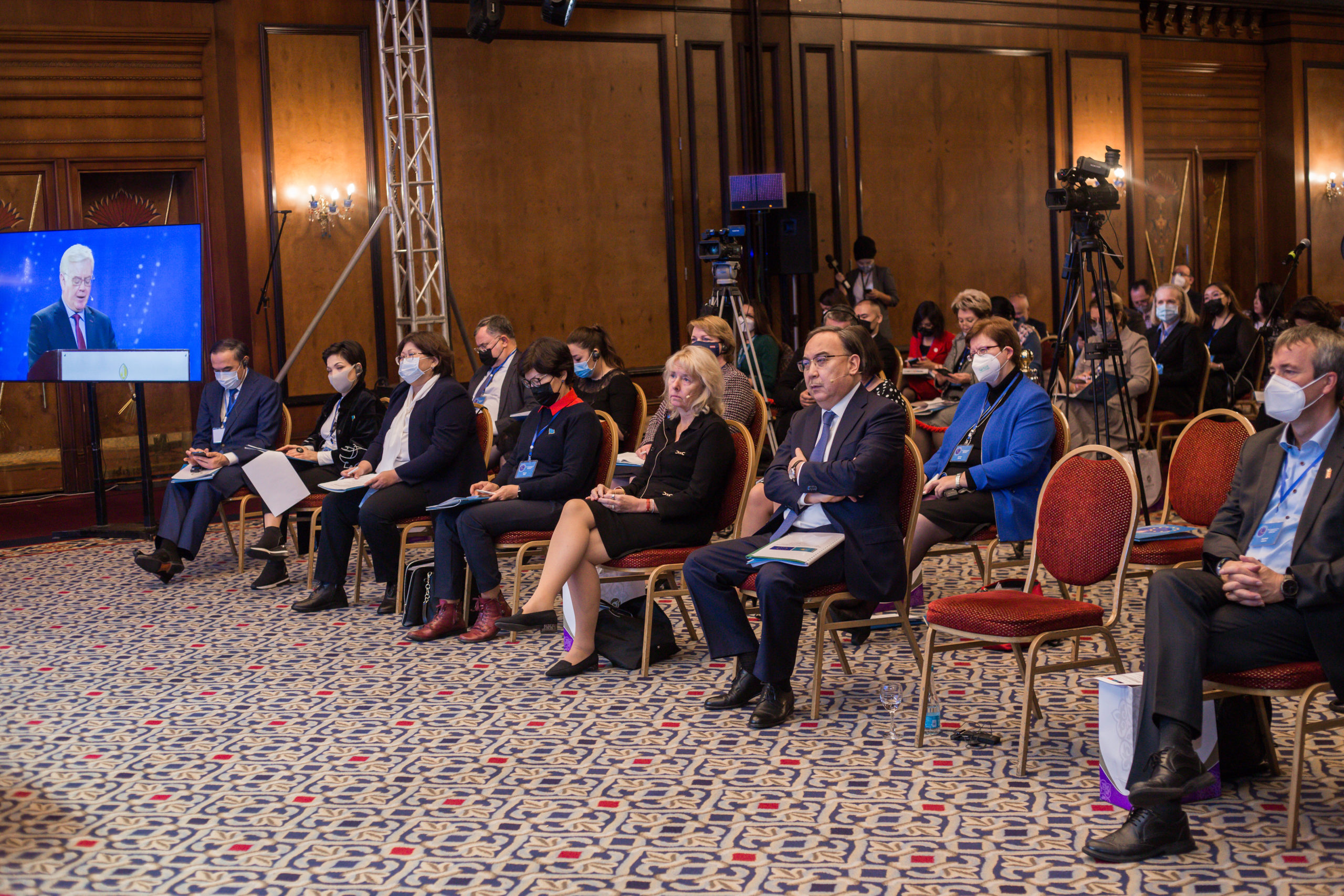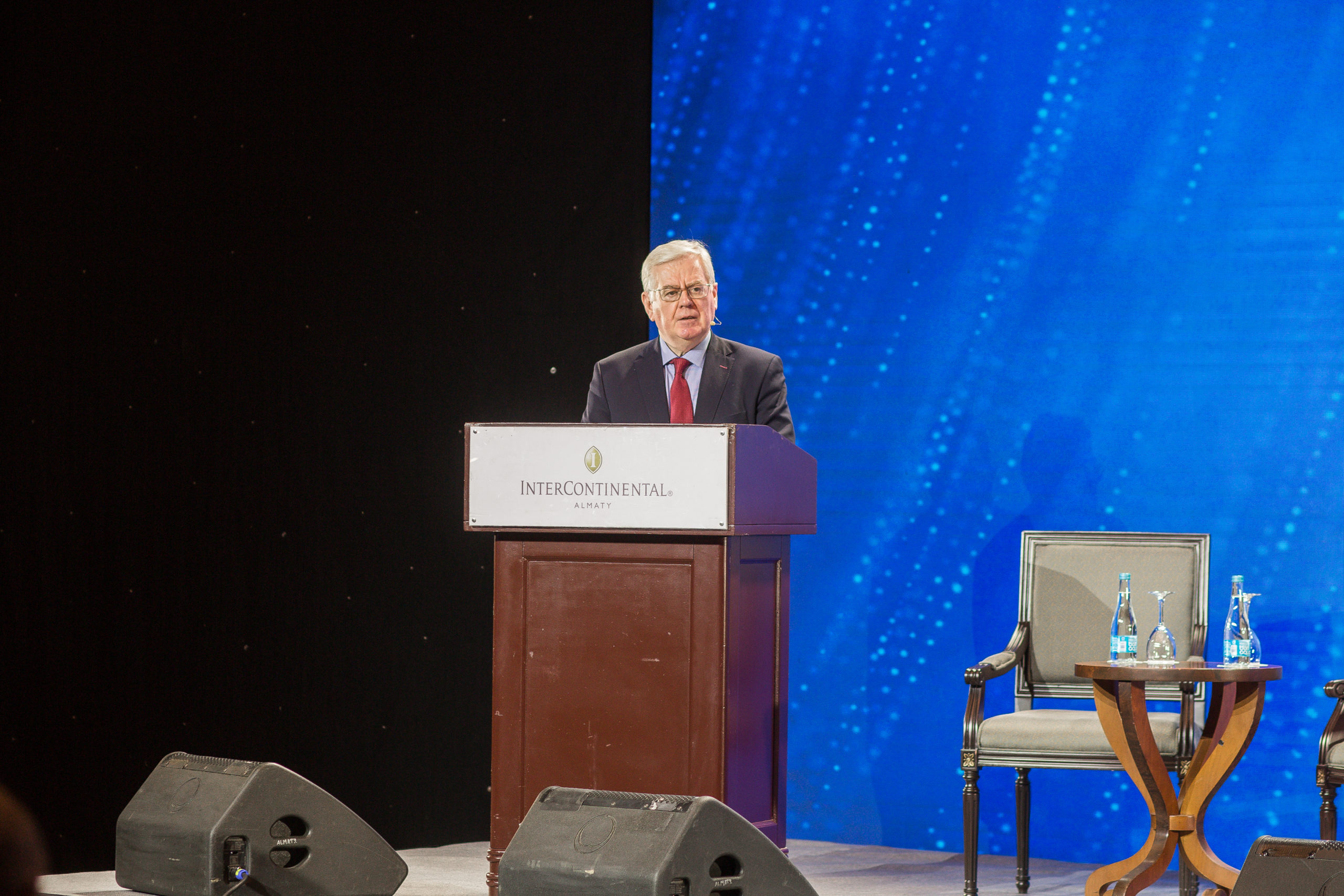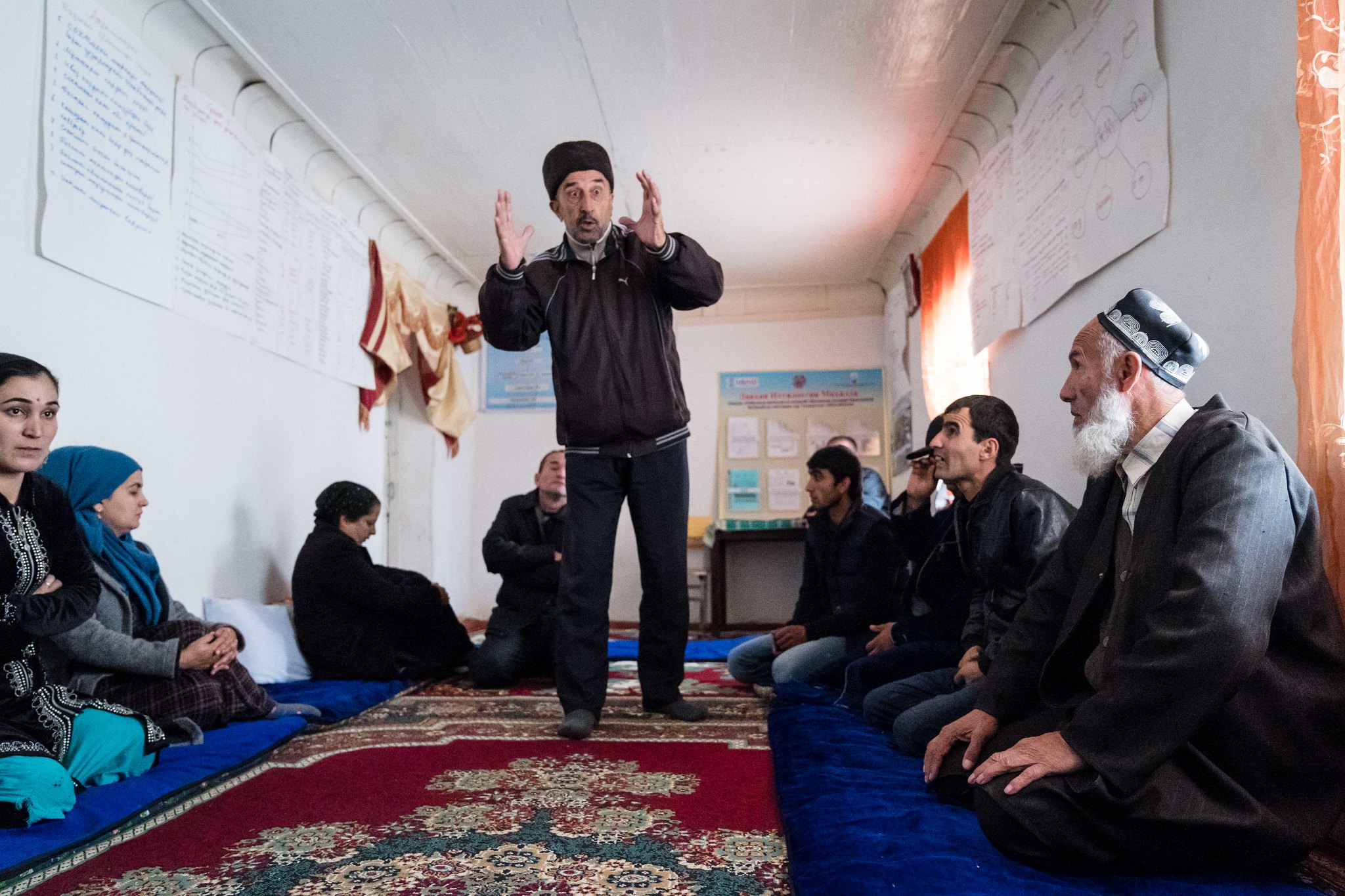EU and AKF support civil society organisations in building inclusive and sustainable post-COVID Recovery in Central Asia
On 6 October 2021, AKF joined the EU's Central Asia Civil Society Forum in Almaty, Kazakhstan

The EU Civil Society Forum is a platform for dialogue involving representatives of civil society, media and experts from the region and the EU to discuss the implementation of the EU Central Asia Strategy, adopted in 2019. The Forum brought together around 70 participants in person, while 300 participants joined online, representing grassroots civil society, the private sector, researchers, media, as well as governments. EU Special Representative for Central Asia, Ambassador Terhi Hakala (above) and Mr. Eamon Gilmore, EU Special Representative for Human Rights joined the event in person.
This third iteration of the Forum, taking place in the context of the COVID-19 pandemic, focused on engaging civil society, youth, media, governments and the private sector in building an inclusive and sustainable post-COVID recovery in the Central Asia region. Special attention was paid to stronger engagement on gender equality and empowering youth as key to building fairer, more inclusive and more prosperous societies.
Mr. Erzhan Kazykhan, Special Representative of the President of Kazakhstan for International Cooperation Forum remarked that “this meeting is taking place against the background of pandemic recovery, a climate crisis, and the humanitarian situation in Afghanistan – a triple threat. We are all in the same boat so we must carefully – yet boldly – navigate the stormy waters”.
Mr. Kazykhan emphasised that the current acute humanitarian situation in Afghanistan should be the first priority for the EU and Central Asia countries. An independent, sovereign Afghanistan living at peace with itself and its neighbours is a prerequisite for the stability and prosperity of the entire region.
“This meeting is taking place against the background of pandemic recovery, a climate crisis, and the humanitarian situation in Afghanistan – a triple threat. We are all in the same boat so we must carefully – yet boldly – navigate the stormy waters”.
Mr. Erzhan Kazykhan, Special Representative of the President of Kazakhstan for International Cooperation
AKF’s Global Lead, Gender Equality, Gulnora Mukhamadieva, moderated the session: ‘Strengthening Resilience through Inclusion’. Speakers and participants drew attention to increased cases of gender-based violence, a marked increase in unemployment and poverty, return of migrant labourers, inflation, rising food insecurity, and geopolitical tensions in the region. A strong consensus emerged that successful recovery requires a paradigm shift towards people-centered policies and locally–driven, transparent governance, with strong involvement of civil society.

Melad ul Karim, AKF Afghanistan’s National Lead for Agriculture and Food Security presented during the session: ‘Regional Cooperation – jointly addressing environmental challenges’. He emphasised that Central Asian countries are among the most vulnerable to climate change and highlighted the role of civil society in building the resilience of people and their communities to manage the impact of climate change.
During the session, Melad ul Karim shared results and lessons learned from the project funded by the EU on community based climate change adaptation, which is currently being implemented in Amu Darya River Basin by AKF and the University of Central Asia. This project is being implemented on the Afghan side of the river basin and is designed to address the problem of unsustainable use and poor management of available water, rangeland, woodland and rain-fed land resources which is leading to loss of biodiversity, ecosystem services and community resilience. Melad ul Karim put forward several recommendations:
- Development of a regional strategy towards climate change mitigation and adaptation with the involvement of civil society organisations from across the region.
- Establishing a web-based regional learning facility to provide civil society with climate change related knowledge and skills.
- Promote regional coordination in climate change monitoring, mitigation and adaptation research activities.
- Create a green energy regional hub for sustainable energy and water resources management.
- Develop guidelines for the sharing of natural resources across the region.
- Create a regional climate resilience fund, involving civil society in its management.

Wrapping up the session, Ambassador Terhi Hakala thanked all the participants for their active participation and mentioned that all the recommendations of the Forum will be discussed during the upcoming EU Central Asia Ministerial meetings to help to accelerate the implementation of the EU’s Central Asia Strategy.

Across Central Asia, AKF and the broader AKDN lead a range of integrated programmes to improve the quality of life and expand opportunities for the communities that live there with support from the EU. AKF’s programmes tackle six key areas of focus: agriculture and food security, economic inclusion, education, early childhood development, health and nutrition, and civil society. In 2020, AKF programmes reached 473,900 people in Tajikistan and 372,000 people in the Kyrgyz Republic.
This article was written by Gulnora Mukhamadieva (Global Advisor, Civil Society and Gender) and Kerensa Keevill (Digital Content and Communications Officer).


Support our work Your donations are helping us build a future where we all thrive together.